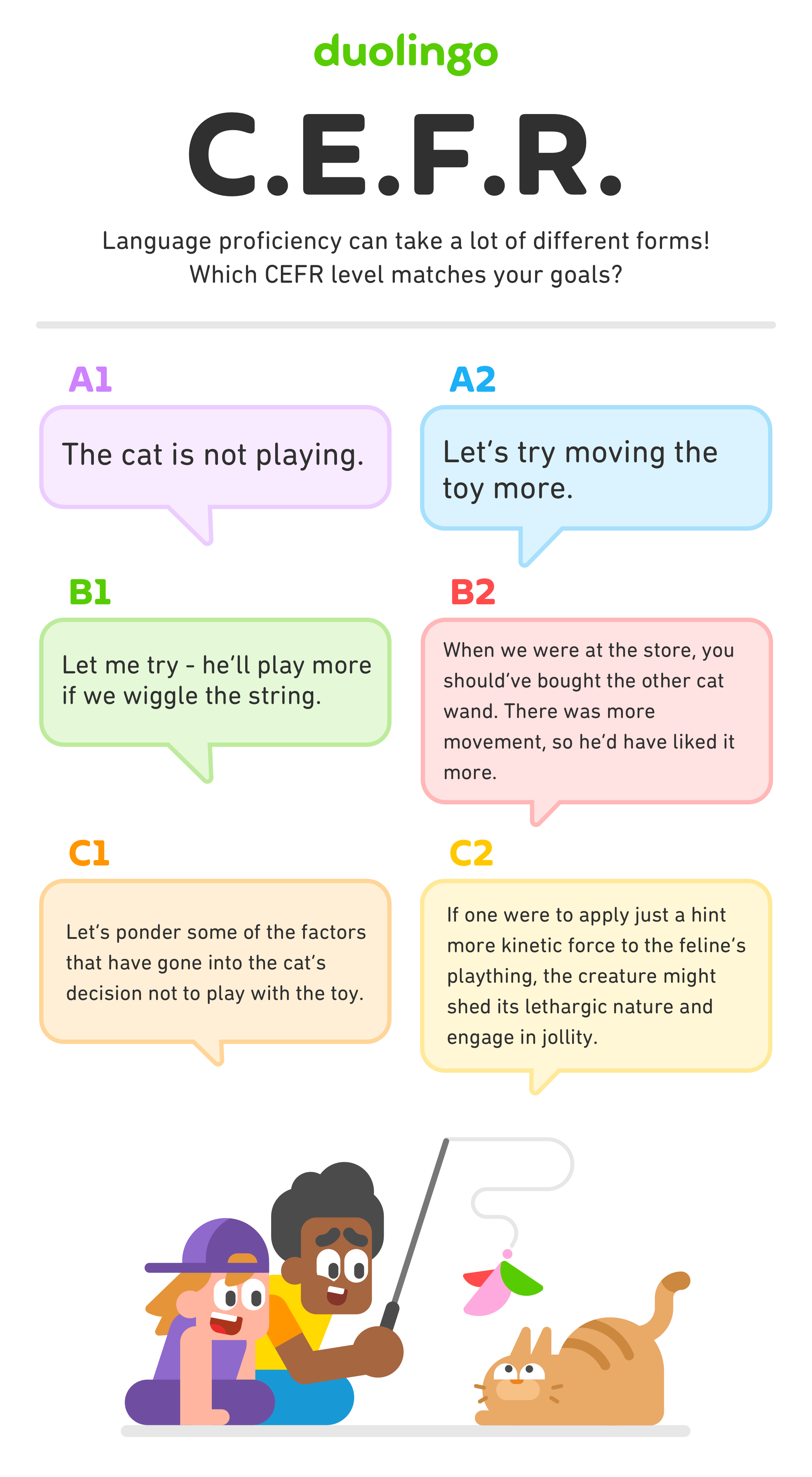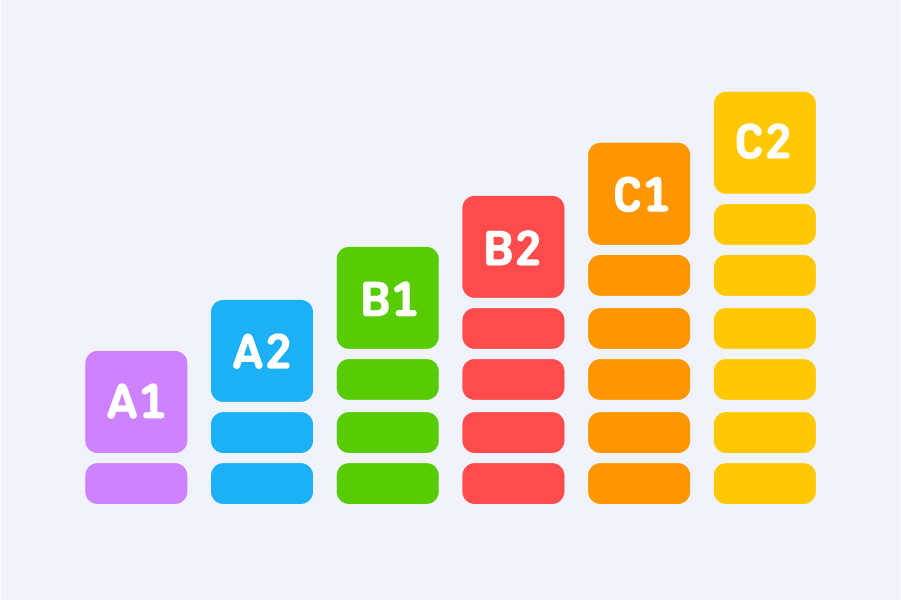Learning a language doesn’t have to mean learning everything in the language you’re studying. (Even native speakers have to learn new words!) Learners often have particular goals in mind when studying a new language, so what counts as success for one learner might look pretty different from the finish line for another.
That’s why it’s so hard to decide what exactly it means to be “fluent” in a new language. The number of words and kinds of grammar you need in order to arrange a weekend at the beach with your best friend are really different from the vocabulary and complex structures needed to write a dissenting opinion for the U.S. Supreme Court.
At Duolingo, we use the Common European Framework of Reference for Languages (CEFR) to set goals for different language proficiency levels when we design our courses. The levels are labeled A1, A2, B1, B2, C1, and C2, and they cover increasingly complex language needs. Our biggest courses, including Spanish and French for English speakers, teach through B2, and courses that are newer or in the process of being updated or CEFR-aligned vary in their coverage, from A1 to B2.
You might be surprised by how much you can achieve at each level! For example, Academy-Award-winning director Bong Joon Ho used A1 English to express thanks (“Thank you, I will drink until next morning”), but in order to express more complex sentiments about his cinematic inspiration, he spoke in B1 Korean and used an interpreter.

Most people don’t need to master all, or even most, of the levels! It’s all about what you want to do with the language. To make those beach plans, you can probably manage fairly well at B1, but to give Ruth Bader Ginsburg a run for her money, you’ll need to work your way up to C2, the highest level on the CEFR scale. Many speakers don’t need to use C1 or C2 vocabulary and grammar, even in their first language.
People often use “fluent” to describe their language goals, but “comfortable” might be what they’re really getting at—and you can feel “comfortable” at a lot of those CEFR levels! Which level aligns best with what you’ll be doing in the language you’re studying?
